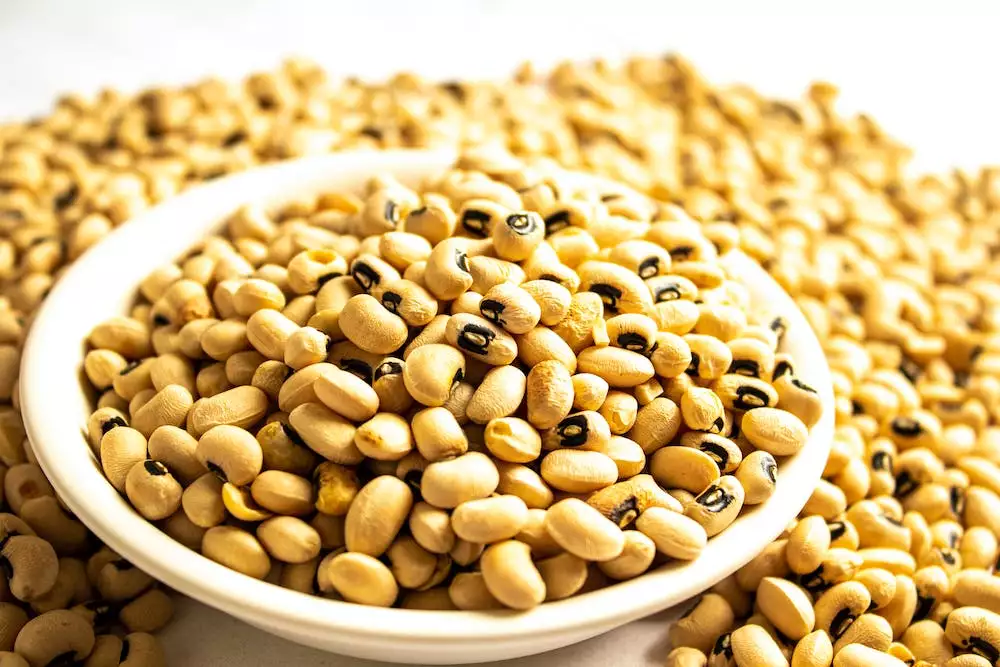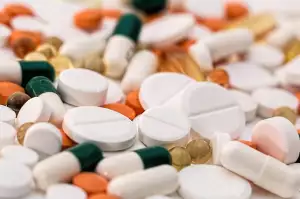Kidneys: the key organ for health and vitality

The pelvis is one of the most important organs in the human body. It is located in the abdominal cavity on either side of the spine and has a key function in maintaining fluid balance in the body. The kidneys also filter the blood and remove waste substances from it. In addition, it produces hormones that regulate blood pressure and promote the production of red blood cells. It is important for the proper functioning of the entire body that the kidneys are healthy and perform their function efficiently. Therefore, it is important to take care of prevention and regular kidney examinations.
Structure of the kidney
The kidney is an organ that is located in the abdominal cavity. It is shaped like a bean and consists of two parts - the cortex and the medulla. The cortex contains glomeruli which are used for filtering blood, while the medulla contains tubules which are responsible for reabsorption and excretion of substances into the urine. The kidney also contains a large number of blood vessels that ensure proper blood flow and support the function of the organ. Overall, the structure of the kidney is very complex and highly specialized for its primary function of removing waste products from the body.
Functions of the kidneys
The kidneys are a vital organ in the body that provides a number of important functions. Some of the most important functions of the kidneys include filtering the blood and removing waste products from the body. The kidneys also regulate the levels of water, salt and other minerals in the body, which is crucial for maintaining the proper pH balance of the blood. Another important function of the kidneys is the production of hormones that affect blood pressure, red blood cell production and calcium metabolism. If the kidneys are damaged or not functioning properly, serious health problems such as kidney failure or chronic kidney disease can occur. That's why it's important to take good care of your kidney health and have regular preventive checkups with your doctor.
Kidney disease
The kidneys are important organs of the human body that are responsible for filtering blood and removing waste products from the body. Unfortunately, many people suffer from kidney disease, which can lead to serious problems. The most common causes of kidney disease include high blood pressure, diabetes, urinary tract infections, use of certain medications and genetic predisposition. Kidney disease manifests itself in various symptoms such as pain in the side, swelling of the legs and face, and problems with urination. If you suspect kidney problems, it is important to seek medical attention as soon as possible and undergo the necessary tests.
1. Acute kidney failure
Acute kidney failure is a condition where there is sudden and severe damage to the kidneys. This condition can be caused, for example, by infections, poisoning or insufficient blood supply to the kidneys. If failure is not treated in time, it can lead to complications and even death. Therefore, it is important to take proper care of the kidneys and have regular preventive check-ups with a doctor.
2. Chronic kidney failure
Chronic kidney failure is a serious disease that can lead to permanent kidney damage and even complete organ failure. Some of the causes of this disease include long-term use of certain medications, high blood pressure, unhealthy diet, diabetes mellitus or hereditary diseases affecting the kidneys. The main symptoms of chronic kidney failure include fatigue, lack of appetite, elevated blood urea and creatinine levels, swelling of the limbs and abdominal pain. Treatment for this disease involves lifestyle and diet changes, medication and, in some cases, dialysis. It is important to remember that preventing chronic kidney failure is key to maintaining the healthy functions of this important organ.
3. Kidney stones
Ladney stones are a relatively common health problem that affects many people around the world. These stones form in the kidneys due to excessive amounts of certain substances such as calcium. The stones can vary in size and shape and manifest as pain in the kidney, urinary tract and abdomen. There are several options for removing stones, including surgery, minor interventions with laser or ultrasound, and medication. In the prevention of kidney stones, it is important to follow a sufficient drinking regime and limit excessive amounts of foods containing calcium and oxalate.
4. Urinary tract infections
Urinary tract infections are a common health problem that can affect kidney function. They are involved in the filtration of blood and excretion of waste substances in the urine. However, infections can lead to inflammation of the bladder and further to infection of the kidneys themselves. This can cause serious complications such as damage to kidney tissue or even kidney failure. Therefore, if an infection is suspected, it is essential to seek medical attention and undergo antibiotic therapy as soon as possible. Prevention of urinary tract infections can be prevented, for example, by regular drinking regimes and good hygiene of the private parts.
Diagnosis and treatment
The kidneys are important organs of the body that play a key role in removing harmful substances from the blood and maintaining the balance of water and salts in the body. When the kidneys fail, toxic substances and water can accumulate, which can lead to serious health complications. Diagnosing and treating kidney disease is therefore very important. The most common methods of diagnosis include blood tests, urine tests and ultrasound scans. In the case of kidney disease, doctors often first try to change the patient's diet and modify their lifestyle. If this is not enough, medication or even surgery may be needed. It is important to make sure to have regular check-ups with your doctor and monitor your health so that any kidney complications are detected as early as possible.
1. Laboratory tests
Laboratory tests are the primary means of diagnosing kidney disorders. Among the most commonly used are blood tests that focus on the amount of creatinine and urea in the blood. These substances accumulate in the body during kidney failure and can cause a number of complications. Another frequently used test is the determination of proteinuria, which means the amount of protein in the urine. Higher values may indicate damage to the kidney filters. Electrolytes - i.e. sodium, potassium, calcium and magnesium - are also an important laboratory test - these elements can also be affected in kidney disease, so blood levels need to be monitored.
2. Imaging methods
.When we talk about the kidneys, it is undoubtedly one of the most important organs in our body. The kidneys perform a number of functions, such as removing waste substances from the blood, regulating fluid levels in the body or producing hormones. To diagnose various kidney diseases, various imaging methods are now available that allow doctors to see the internal structure of the kidneys and assess their condition. These include ultrasound, magnetic resonance imaging or CT scan. Thanks to these modern technologies, it is possible to detect even small changes in the kidney tissues and address any problems early on.
3. Pharmacotherapy
Pharmacotherapy is an important part of the treatment of kidney disease. The drugs used in this therapy are designed to help reduce inflammation, regenerate damaged tissues and prevent further kidney damage. These medications include drugs such as ACE inhibitors, which lower blood pressure and help maintain normal kidney function. In addition, diuretics are used to help remove excess fluid from the body and reduce the burden on the kidneys. However, it is important to remember that pharmacotherapy is not a substitute for a good lifestyle and prevention of kidney disease.
4. Surgical interventions
Surgical interventions are necessary in medicine for many organ affections, including kidney. Kidney surgery is performed mainly for kidney cancer, but also for blockage of the ureters or stones in the urinary tract. Surgery can be a relieving procedure for a patient with serious kidney disease, despite the long and difficult healing after surgery. Modern technology allows for minimal risks and complications during kidney surgery, which is important for the best possible recovery for the patient.
Prevention
Prevention is a key factor in maintaining kidney health. One of the main preventions is adequate fluid intake, which helps maintain proper kidney function and reduces the risk of stone formation. Also important is regular exercise, which promotes circulation and lowers blood pressure. A good quality diet low in salt, sugar and fat helps to maintain proper cholesterol levels, which also benefits kidney health. Prevention should be a priority for everyone, as healthy kidneys are a key organ for maintaining overall body health.
In conclusion, the kidneys are essential organs for the proper functioning of the human body. Their main function is to remove waste substances from the body and maintain fluid balance in the body. If the kidneys are damaged, it can lead to serious health problems up to kidney failure. Therefore, it is important to keep the kidneys in good condition and maintain a healthy lifestyle with adequate water intake and limit salt and alcohol consumption. In the event of any urinary problems or abdominal pain, medical attention should be sought immediately.
Resources
When we talk about the kidneys as organs, it is important to remember that they are a key resource for maintaining our health. These small organs perform several important functions in the body, such as regulating fluid and electrolyte levels, influencing blood pressure, and producing hormones that stimulate the production of red blood cells. In addition, the kidneys are also responsible for filtering the blood and removing waste products from the body through urine. Therefore, it is important to take proper care of these organs and to ensure that they receive sufficient fluids and nutrients necessary for their functioning.
Published: 10. 08. 2023
Category: Health



